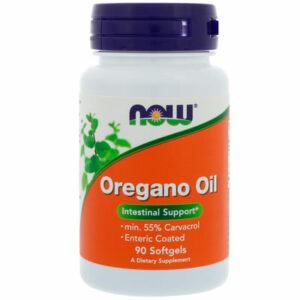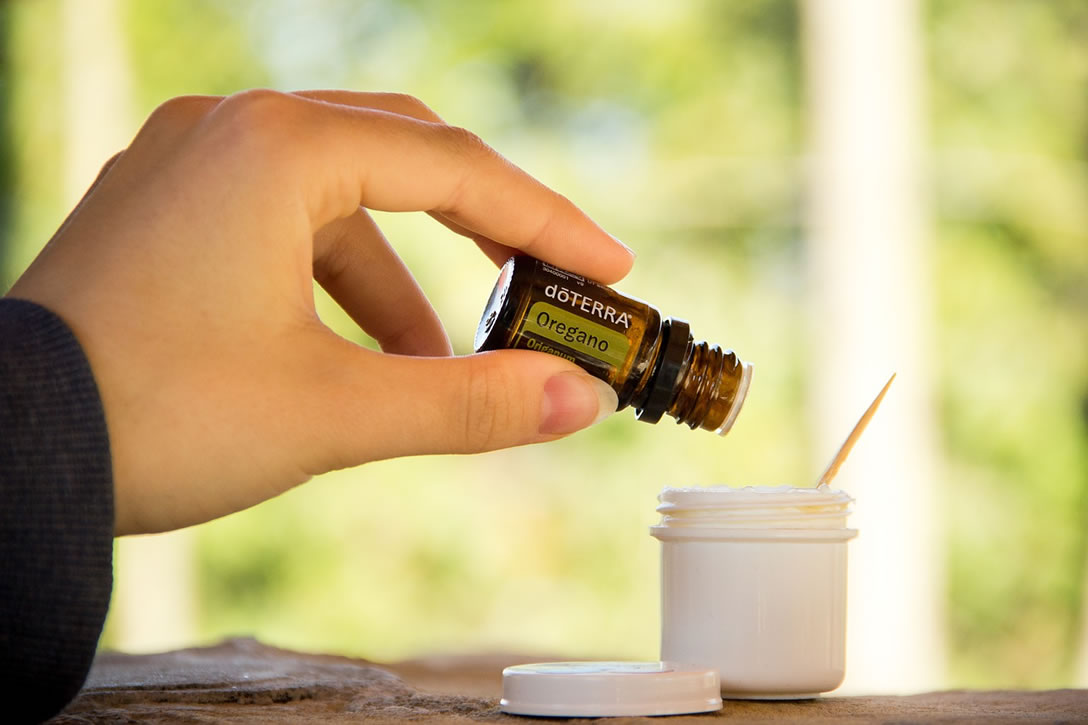Oregano Oil is widely used in the food, cosmetics, and pharmaceutical industries due to its antibacterial activity, antiviral and antifungal properties.
What are the benefits of oregano oil supplements? Are there any side effects?
Table of Contents
- What is oregano oil?
- What are the benefits of oregano oil?
- Are there any side effects of oregano oil?
- Safety Precautions
- Where to buy the most recommended oregano oil capsules?
What is oregano oil?
Oregano oil is an essential oil made from the leaves and twigs of oregano plants, which are extracted by steam distillation.
Oregano, also known as Oregon grass, is a perennial herbaceous aromatic plant that grows mainly on hillsides, bushes, and grasslands at an altitude of 500 to 3600 meters in Europe, North Africa, and Asia. It has pinnate leaves and purple flowers, covering 61 species and 17 genera, belonging to 6 different plant families (especially the most economical value of Verbenaceae and Labiatae).
Oregano-like plants are known and valued because of their essential oil content, and mainly contain the following chemical components, such as thymol, carvacrol, linalool terpene, and sesquiterpenes, of which carvacrol content is the highest and also the most effective ingredient.
Oregano has traditionally been used in folk medicine to relieve symptoms such as asthma, bronchitis, cough, diarrhea, indigestion, stomach pain, menstrual disorders, general infections, inflammation-related diseases, and diabetes.
What are the benefits of oregano oil?
1. Oregano oil has an antibacterial effect
Harmful microorganisms (such as bacteria and viruses) pose a considerable threat to human health. In developing countries, due to the scarcity of clean water, sewage treatment systems are overwhelmed, resulting in a disproportionate rise in infectious diseases.
It is estimated that 1500 people per hour die from infectious diseases caused by harmful microorganisms (such as respiratory infections, AIDS, diarrhea, tuberculosis, malaria, and measles), and more than half of them are children under 5 years old.
An animal study pointed out that oral oregano oil can help fight infections caused by Staphylococcus aureus.
*Conclusion: Animal studies indicate that oregano oil can help fight infections caused by some bacteria, but human studies still need to be further verified.
2. Oregano oil has anti-inflammatory and antioxidant activity
Inflammation is an important self-protection response of the body to tissue damage or infection. During the inflammation process, many immune cells are involved. These different cells directly trigger immune events, such as the release of cytokines, chemokines, and inflammatory mediators.
However, long-term inflammation is associated with many chronic diseases, such as rheumatoid arthritis, diabetes, cardiovascular disease, and cancer. As defensive substances, antioxidants can counteract these harmful effects and reduce the incidence.
A systematic literature review and meta-analysis (including nine animal studies) pointed out that carvacrol (the main component of carvacrol, oregano oil) can reduce interleukin 1β, interleukin 4, interleukin 8, and malondialdehyde, but has no significant effect on interleukin 6 and tumor necrosis factor-alpha (TNF-α).
*Conclusion: Animal studies indicate that oregano oil has anti-inflammatory and antioxidant effects, but human studies still need to be further verified.
3. Oregano oil is beneficial for wound healing
Wound healing is a normal physiological process. It passes through four precise and highly stylized stages, including hemostasis, inflammation, hyperplasia, and remodeling. For a wound to heal successfully, all four stages must be in proper order And within the time frame.
Although minor injuries in healthy individuals usually heal well, the presence of larger injuries or physiological and disease states (including age, infection, diabetes, vascular disease, and cancer) may have a negative impact on the healing process, which is currently affected by the medical community ‘S understanding is still limited.
A Systematic Review (including 13 animal trials) pointed out that thymol or carvacrol can play a positive role in the three stages of wound healing, including regulating inflammatory cytokines and promoting regeneration Epithelial, angiogenic, and granulation tissue development, and improve collagen deposition, regulate the growth of fibroblasts and keratinocytes.
*Conclusion: Animal experiments indicate that the main component of oregano oil, thymol or carvacrol, is helpful for wound repair, but human studies still need to confirm its effectiveness and safety.
4. Oregano oil is beneficial for asthma
Asthma is a reversible airflow obstruction, non-specific bronchial hyperresponsiveness, and chronic airway inflammation. Symptoms include difficulty breathing, coughing, chest tightness, and shortness of breath.
The disease affects more than 300 million people worldwide and kills about 250,000 people every year. In recent decades, as inhaled corticosteroids have become the main treatment for asthma, mortality has declined.
A randomized, double-blind, placebo-controlled, phase II clinical trial (2 months, 23 patients with moderate to severe asthma) pointed out that oral carvacrol can help improve lung function tests and respiratory symptoms, Hematological indicators and high-sensitivity c-reactive protein (hs-CRP).
*Conclusion: Carvacrol, the main ingredient of oregano oil, may have a positive effect on asthma, but limited to a small sample size, more large studies are still needed to confirm its effectiveness and safety.
5. Oregano oil beneficial parasitic infection
Enteric parasitic infections caused by protozoan and helminths are one of the most common infections in developing countries. Due to the lack of adequate water and sanitation facilities, morbidity and mortality are very high.
It is estimated that a total of 400 million school-age children worldwide are infected with parasites, with or without significant diarrhea, which strongly affects digestion and absorption in the intestine, resulting in attention deficits, learning disabilities, malnutrition, anemia, growth retardation, irritability, and cognition obstacle.
A human trial (for 6 weeks, targeting 14 adult patients who tested positive for intestinal parasites) pointed out that oral oregano oil can improve intestinal parasites (Human Blastocystis, Amoeba harveyi, and Amoeba protozoa) infection symptoms.
*Conclusion: Oral oregano oil may improve intestinal parasitic infections, but limited to a small number of samples, more large-scale trials are still needed to confirm its effectiveness and safety.
Are there any side effects of oregano oil?
For people with good health, moderate use of oregano oil is safe in the short term, but possible side effects or adverse reactions include gastrointestinal upset, nausea, vomiting, diarrhea, fatigue, increased bleeding, muscle pain, dizziness, headache, difficulty swallowing, etc.
Safety Precautions
1. Do not use it if you have been allergic to Labiatae plants (may cause allergic reactions). Related plants include basil, mint, rosemary, sage, marjoram, oregano, hyssop, thyme, lavender, and perilla.
2. Do not use for pregnant women, lactating women, infants, and young children (because the relevant safety is unknown).
3. Do not use if the liver and kidney function is poor (because the relevant safety is unknown).
4. Abnormal blood coagulation function, take an anticoagulant and do not use it for two weeks before the operation (because it may have an anticoagulant effect), the names of related drugs include aspirin, dabigatran, dalteparin, enoxaparin, heparin, warfarin.
5. Do not use with herbs that may affect blood clotting function, such as angelica, clove, salvia, garlic, ginger, ginkgo, Panax notoginseng, horse chestnut tree, red clover, turmeric, etc.
6. For topical external use, please use base oil (such as olive oil, coconut oil, etc.) after dilution to avoid skin irritation.
7. Patients with diabetes or those taking hypoglycemic drugs should not take it orally (because it may have a hypoglycemic effect). Related drug names include glimepiride, glyburide, insulin, metformin, pioglitazone, rosiglitazone.
8. Do not use with herbs and supplements that may lower blood sugar, including lipoic acid, bitter gourd, chromium, devil’s claw, fenugreek, garlic, guar gum, horse chestnut, ginseng, psyllium, Siberian ginseng, etc.
9. Before using any herbs, essential oils or supplements, it is best to consult a professional medical staff and follow the product instructions.
10. Do not use in combination with lithium or diuretic, which may increase the side effects of the drug.
Where to buy the most recommended oregano oil capsules?
In recent years, food safety problems in various countries have exploded, and it is not healthy but black-hearted products that everyone spends on. Therefore, European and American products with relatively strict quality control have become popular products.
And iHerb.com is a large-scale medical cosmetics e-commerce company in the United States. It has a high satisfaction rate of 97% in the evaluation of Google customers. It provides global home delivery so that you can buy it without risking buying fakes through purchasing high-quality health products.

